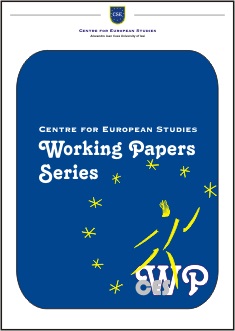THE GEOPOLITICS OF HELPLESSNESS
THE GEOPOLITICS OF HELPLESSNESS
Author(s): Tiberiu BraileanSubject(s): Politics / Political Sciences
Published by: Editura Universităţii »Alexandru Ioan Cuza« din Iaşi
Keywords: Actors (Ukraine, the European Union, Russia, NATO, Romania. the Republic of Moldova, Poland, Turkey, etc.); geopolitics; geo-economics; sustainability challenges; interests; objectives; resources; scenarios for the future
Summary/Abstract: The events in Ukraine are in the thick of actuality, at the crossroads of East and West. From a buffer zone it has become an acute space of exhibition of Russia’s interests, on one side, and of the European Union’s, on the other side. As the EU does not have a unique army or a strong political leadership, the presence - as major actors - of NATO and the United States of America is necessary. Huge geostrategic, military, economic, politic, cultural, social and even religious interests are involved. As a neighbour state, member of the EU and NATO, Romania is directly concerned by the present deployments. We wonder if its foreign politics is an appropriate one. Moreover, great stakes aim at the statehood and independence of the Republic of Moldova, but also at the status of the Romanians living in the Cernowits region. Thus, we try to analyse what will happen in Ukraine and with the actors involved, in general. There are several possible scenarios, among which: the success of the elections and the stabilization of Ukraine in integrum; the federation, with the preservation of the frontiers or with the amputation of these ones; Russia’s conquest of the country, taking into account EU’s demonstrated incapacities; a war that can dangerously escalate; the maintenance of a grey situation, whre the two camps explore each other, sanction each other, but not too drastically, elections and referendums are organized, weapons are pacing around, threats are teething, but nothing important is decided, not even a new cold war. The title hints to everyon’s weaknesses (is Ukraine a selfsustainable state?), but especially to EU’s, the geopolitical objectives of which are in complete disagreement with its means. That is why, in a short term, Russia can win. But in a medium and long term...
Journal: CES Working Papers
- Issue Year: 6/2014
- Issue No: 2A
- Page Range: 6-15
- Page Count: 10
- Language: English

